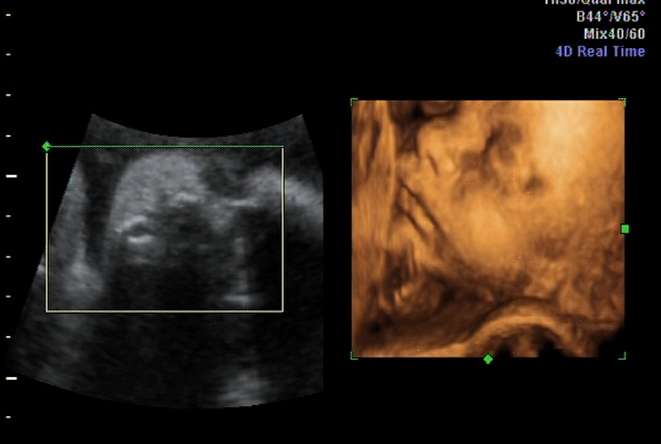
Companies that perform keepsake sonograms for expectant mothers are looking to legitimize their services in Tennessee. They want the state legislature to set minimum requirements for technicians as other states are restricting so-called “entertainment ultrasounds” altogether.
Baby boutiques offering 3D and 4D imaging have popped up around the country with at least 10 storefronts in Tennessee. Stork Vision is a Texas-based chain with a location in Brentwood. A mother-to-be named Summer James appears in a promotional video.
“The detail, it’s just amazing,” she says. “He has his dad’s feet. I think he was blowing kisses.”
Her family watches the screen, seated on couches. James takes home a DVD of the experience, which she says she’ll share with her child one day.
The problem is, the FDA has warned against ultrasounds for non-medical purposes. The technology is considered fairly harmless, but there also hasn’t been much study on extended exposure.
“Although there is a lack of evidence of any harm due to ultrasound imaging and heartbeat monitors, prudent use of these devices by trained health care providers is important,” FDA biomedical engineer Shahram Vaezy said in a 2014 release. “Ultrasound can heat tissues slightly, and in some cases, it can also produce very small bubbles (cavitation) in some tissues.”
The Society of Diagnostic Medical Sonography — which has 27,000 members — opposes any use without a doctor’s supervision. Instructor Jill Webb from Vanderbilt testified before Tennessee lawmakers, saying the proposed regulations legitimize a non-clinical practice.
“By passing this bill, you are promoting that these pregnant women can go and obtain an ultrasound without their physician’s written prescription just because they want to,” she said.
Some states, like Connecticut, have basically banned entertainment ultrasounds by requiring a physician to order one. Oregon, New Mexico, North Dakota, and New Hampshire have passed licensure laws similar to those proposed in Tennessee, but with a key difference — requiring a medical purpose for any ultrasound. The SDMS suggested an amendment that was rejected.
Tennessee lawmakers are on track to pass the bill sponsored by Rep. Charles Sargent, R-Franklin, and Sen. Jack Johnson, R-Franklin. The SDMS claims it would be the first legislation in the country to condone non-medical ultrasounds. But lawmakers say the legislation establishing an ultrasound technician license overseen by the Tennessee Health Department is better than what’s in place now — no rules at all.
“I think putting some type of certification and some type of minimum standard in practice is very reasonable,” said Rep. Cameron Sexton, R-Crossville, chair of the House health committee. “And I think it’s much needed, especially that now anyone can do it.”


